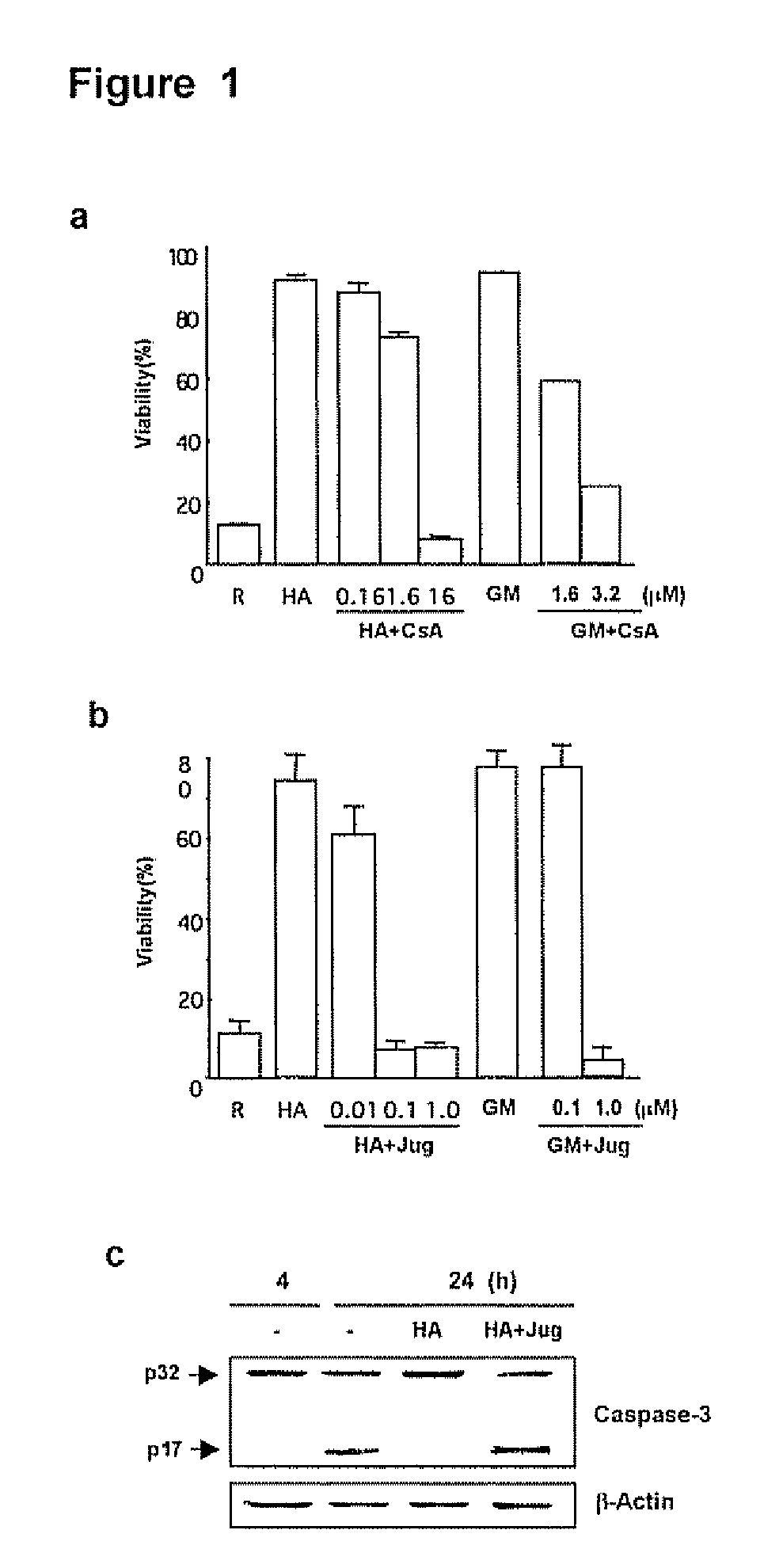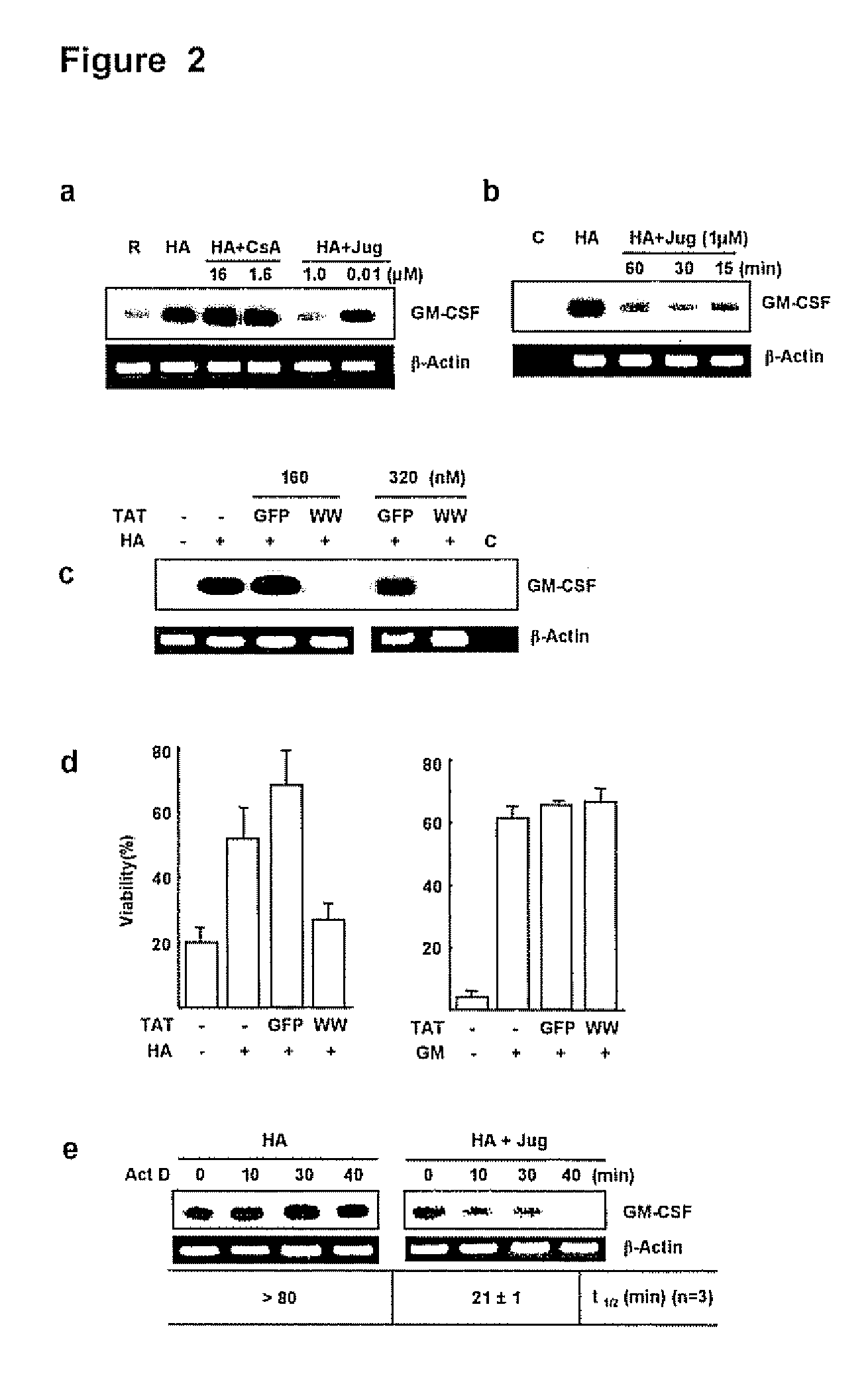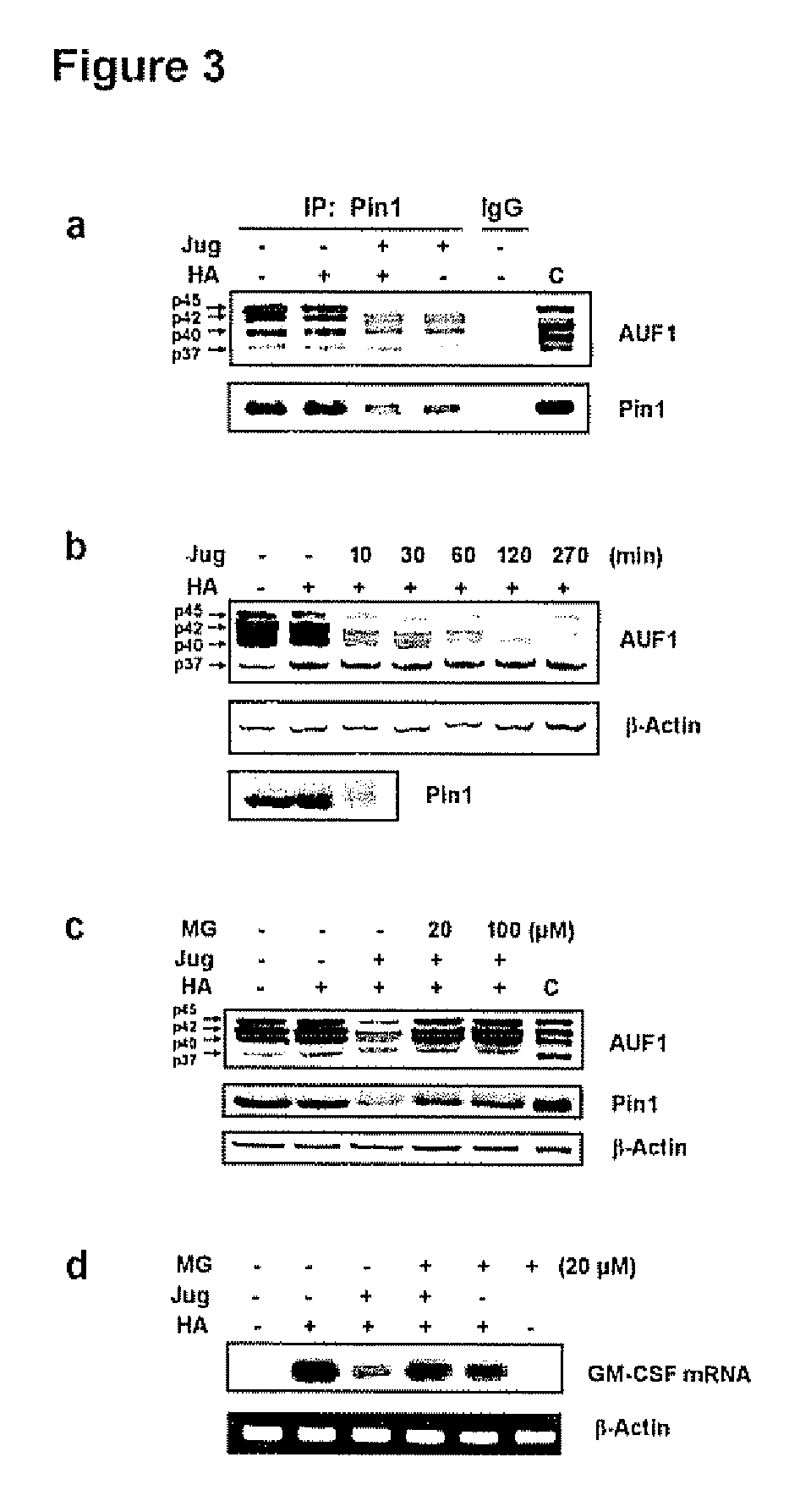Blockade of Pin1 Prevents Cytokine Production by Activated Immune Cells
a technology of activated immune cells and pin1 blockade, which is applied in the direction of immunological disorders, drug compositions, sense disorders, etc., can solve the problems of unwanted consequences and disadvantageous normal operation of the immunological system, and achieve the effect of reducing or inhibiting the pathological effects and ameliorating acute and chronic tissue rejection
- Summary
- Abstract
- Description
- Claims
- Application Information
AI Technical Summary
Benefits of technology
Problems solved by technology
Method used
Image
Examples
example 1
The Effect of Peptidyl-Prolyl Isomerase Inhibitors on Eosinophil Survival
[0124] Eosinophils (Eos) are typically present at low levels (1-2% of PBMC) in the blood of normal individuals and turnover rapidly with a lifespan of approximately 3 days. In asthma, Eos migrate into the lung where they can be found in the airways and parenchyma. In active asthmatics, Eos can comprise 50% of the total airway immune cells. After their removal by bronchoalveolar lavage (BAL), pulmonary Eos show markedly prolonged in vitro survival (>7 days) which can be attenuated with anti-GM-CSF antibodies. These cells also show evidence of generalized activation, including respiratory burst, cytokine expression and prostaglandin release.
[0125] Pulmonary eosinophilia is associated with pathological conditions such as asthma, based on their increased numbers and activation state in such disorders. Eosinophils are known to be activated, inter alia, by hyaluronic acid, and one of the hallmarks of activation is...
example 2
Pin1 Required for GM-CSF Release, GM-CSF mRNA Stabilization and Cell Survival
[0129] The PPIase inhibitor cyclosporin A (CsA) has been implicated in the expression of GM-CSF by airway cells (Kita, H. et al. 1991, J Exp Med. 174: 745-748; Khan, L. N. et al. 2000, Am J. Respir. Crit. Care Med. 162:1377-1382) but the effects of juglone, a specific and irreversible Pin1 inhibitor (Hennig, L. et al. 1998, Biochemistry 37:5953-5960) are unknowns. Because secreted GM-CSF is essential for Eos survival in vitro, the effect of FK506, CsA and juglone on cell survival after activation with hyaluronic acid (HA) was evaluated. HA causes GM-CSF mRNA stabilization culminating in cytokine secretion (Esnault, S. & Malter, J. S, 2003, J. Immunol. 171:6780-6787).
[0130] Purified peripheral blood Eos were incubated with HA alone or HA plus various concentrations of CsA, juglone or FK506 (all from Sigma Chemical Co., St. Louis, Mo.), and cell viability was determined at day 4. Consistent with previous r...
example 3
Pin1 Associated with AUF1 and is Rapidly Degraded after Juglone Treatment
[0136] In view of the results set forth in Example 2 above, it was evident that cytokine mRNA decay played a role in the effects of HA-activation of eosinophils and juglone inactivation of Pin1. Emerging data implicates AU-rich mRNA binding proteins (AREBPs) in the control of cytokine in RNA decay: both stabilizing and destabilizing AREBP's have been defined (Carballo et al., 2000, Blood 95:1891-1899; Fan et alt, 1998, EMBO J. 17:3448-3460; Capowski et al, 2001, J. Immunol. 167:5970-5976). The majority of AREBPs are phosphoproteins, of which many contain potential Pin1 recognition sites (Ser / Thr-Pro) (FIG. 6).
[0137] Thus, the possibility that Pin1 regulated GM-CSF decay through physical interactions with different AREBPs with subsequent modulation of binding activity or protein / protein interactions through phosphorylation-dependent, PPIase activity was investigated. To this end, Eos cytoplasmic extracts were...
PUM
| Property | Measurement | Unit |
|---|---|---|
| Disorder | aaaaa | aaaaa |
Abstract
Description
Claims
Application Information
 Login to View More
Login to View More - R&D
- Intellectual Property
- Life Sciences
- Materials
- Tech Scout
- Unparalleled Data Quality
- Higher Quality Content
- 60% Fewer Hallucinations
Browse by: Latest US Patents, China's latest patents, Technical Efficacy Thesaurus, Application Domain, Technology Topic, Popular Technical Reports.
© 2025 PatSnap. All rights reserved.Legal|Privacy policy|Modern Slavery Act Transparency Statement|Sitemap|About US| Contact US: help@patsnap.com



